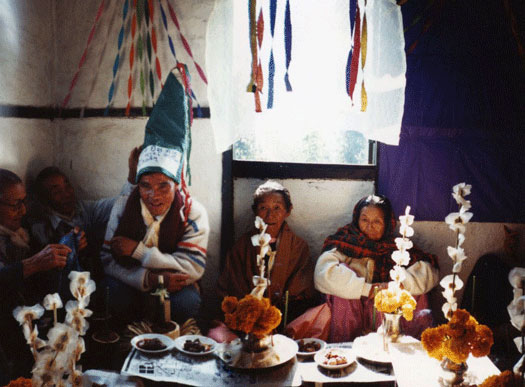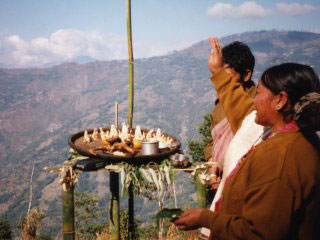AN APPEAL FOR SUPPORT
- We seek your support to meet the expenses relating to the formatting of articles and books, maintaining and running the journal through hosting, correrspondences, etc.Please write to the Editor in his e-mail address mthirumalai@comcast.net to find out how you can support this journal.
- Also please use the AMAZON link to buy your books. Even the smallest contribution will go a long way in supporting this journal. Thank you. Thirumalai, Editor.
BOOKS FOR YOU TO READ AND DOWNLOAD FREE!
- Form and Function of Disorders in Verbal Narratives - A Doctoral Dissertation ...
Kandala Srinivasacharya, Ph.D. - Status Marking in Tamil - A Ph.D. Dissertation ...
P. Perumalsamy, Ph.D. - LANGUAGE AND POWER IN COMMUNICATION ...
Editors: Jennifer M. Bayer, Ph.D., and Pushpa Pai, Ph.D. - Onomatopoeia in Tamil ...
V. Gnanasundaram, Ph.D. - Linguistics and Literature ...
C.Shunmugom, Ph.D., and C. Sivashanmugam, Ph.D., V. Thayalan, Ph.D. and C. Sivakumar, Ph.D. (Editors) - Translation: New Dimensions ...
C.Shunmugom, Ph.D., and C. Sivashanmugam, Ph.D., Editors - Language of Headlines in Kannada Dailies ...
M. N. Leelavathi, Ph.D. - Cooperative Learning Incorporating
Computer-Mediated Communication: Participation, Perceptions, and Learning Outcomes
in a Deaf Education Classroom ...
Michelle Pandian, M.S. -
The Effects of Age on the Ability to Learn English As a Second Language ...
Mariam Dadabhai, B.A. Hons. - A STUDY OF THE SKILLS OF READING
COMPREHENSION IN ENGLISH DEVELOPED BY STUDENTS OF STANDARD IX IN THE SCHOOLS IN TUTICORIN DISTRICT, TAMILNADU ...
A. Joycilin Shermila, Ph.D. - A Socio-Pragmatic Comparative Study of Ostensible Invitations in English and Farsi ...
Mohammad Ali Salmani-Nodoushan, Ph.D. - ADVANCED WRITING - A COURSE TEXTBOOK ...
Parviz Birjandi, Ph.D.
Seyyed Mohammad Alavi, Ph.D.
Mohammad Ali Salmani-Nodoushan, Ph.D. - TEXT FAMILIARITY, READING TASKS, AND ESP TEST PERFORMANCE: A STUDY ON IRANIAN LEP AND NON-LEP UNIVERSITY STUDENTS - A DOCTORAL DISSERTATION ...
Mohammad Ali Salmani-Nodoushan, Ph.D. - A STUDY ON THE LEARNING PROCESS OF ENGLISH
BY HIGHER SECONDARY STUDENTS
WITH SPECIAL REFERENCE TO DHARMAPURI DISTRICT IN TAMILNADU ...
K. Chidambaram, Ph.D. - SPEAKING STRATEGIES TO OVERCOME COMMUNICATION
DIFFICULTIES IN THE TARGET LANGUAGE SITUATION - BANGLADESHIS IN NEW ZEALAND ...
Harunur Rashid Khan - THE PROBLEMS IN LEARNING MODAL AUXILIARY VERBS IN ENGLISH AT HIGH SCHOOL LEVEL ...
Chandra Bose, Ph.D. Candidate - THE ROLE OF VISION IN LANGUAGE LEARNING
- in Children with Moderate to Severe Disabilities ...
Martha Low, Ph.D. - SANSKRIT TO ENGLISH TRANSLATOR ...
S. Aparna, M.Sc. - A LINGUISTIC STUDY OF ENGLISH LANGUAGE CURRICULUM AT THE SECONDARY LEVEL IN BANGLADESH - A COMMUNICATIVE APPROACH TO CURRICULUM DEVELOPMENT by
Kamrul Hasan, Ph.D. - COMMUNICATION VIA EYE AND FACE in Indian Contexts by
M. S. Thirumalai, Ph.D. - COMMUNICATION
VIA GESTURE: A STUDY OF INDIAN CONTEXTS by M. S. Thirumalai, Ph.D. - CIEFL Occasional
Papers in Linguistics,
Vol. 1 - Language, Thought
and Disorder - Some Classic Positions by
M. S. Thirumalai, Ph.D. - English in India:
Loyalty and Attitudes
by Annika Hohenthal - Language In Science
by M. S. Thirumalai, Ph.D. - Vocabulary Education
by B. Mallikarjun, Ph.D. - A CONTRASTIVE ANALYSIS OF HINDI
AND MALAYALAM
by V. Geethakumary, Ph.D. - LANGUAGE OF ADVERTISEMENTS
IN TAMIL
by Sandhya Nayak, Ph.D. - An Introduction to TESOL:
Methods of Teaching English
to Speakers of Other Languages
by M. S. Thirumalai, Ph.D. - Transformation of
Natural Language
into Indexing Language:
Kannada - A Case Study
by B. A. Sharada, Ph.D. - How to Learn
Another Language?
by M.S.Thirumalai, Ph.D. - Verbal Communication
with CP Children
by Shyamala Chengappa, Ph.D.
and M.S.Thirumalai, Ph.D. - Bringing Order
to Linguistic Diversity
- Language Planning in
the British Raj by
Ranjit Singh Rangila,
M. S. Thirumalai,
and B. Mallikarjun
REFERENCE MATERIAL
- UNIVERSAL DECLARATION OF LINGUISTIC RIGHTS
- Lord Macaulay and
His Minute on
Indian Education - In Defense of
Indian Vernaculars
Against
Lord Macaulay's Minute
By A Contemporary of
Lord Macaulay - Languages of India,
Census of India 1991 - The Constitution of India:
Provisions Relating to
Languages - The Official
Languages Act, 1963
(As Amended 1967) - Mother Tongues of India,
According to
1961 Census of India
BACK ISSUES
- FROM MARCH 2001.
- INDEX OF ARTICLES
FROM MARCH, 2001
to JUNE 2008. - INDEX OF AUTHORS
AND THEIR ARTICLES
FROM MARCH, 2001
- JUNE 2008
- E-mail your articles and book-length reports in Microsoft Word to mthirumalai@comcast.net.
- Contributors from South Asia may send their articles to
B. Mallikarjun,
Central Institute of Indian Languages,
Manasagangotri,
Mysore 570006, India or e-mail to mallikarjun@ciil.stpmy.soft.net. PLEASE READ THE GUIDELINES GIVEN IN HOME PAGE IMMEDIATELY AFTER THE LIST OF CONTENTS. - Your articles and booklength reports should be written following the MLA, LSA, or IJDL Stylesheet.
- The Editorial Board has the right to accept, reject, or suggest modifications to the articles submitted for publication, and to make suitable stylistic adjustments. High quality, academic integrity, ethics and morals are expected from the authors and discussants.
Copyright © 2007
M. S. Thirumalai
Exploring Ethnolinguistic Vitality -
A Case Study of Lepchas in Dzongu Valley
Satarupa Dattamajumdar, Ph.D.

Lepcha Family. Picture taken from http://www.lepcha.info/
Abstract
The recent comments on the gradual loss of influence of the Lepcha language on the Lepcha community trigger our attention for an intimate look at the Lepcha speech community. According to Landweer (2008), "The indicators of ethno-linguistic vitality are a collection of factors that have been documented in sociolinguistic literature … have been useful in indicating the probable direction a speech community will go relative to the maintenance of, or shift from, its traditional language. No one factor has become a leading indicator of linguistic vitality.
Whether a language appears to be "maintained" or "dying" depends on the collective impact of positive or negative indicators that place the language on a continuum of stable vitality, change in process due to other-language interference, radical shift in process, and death. As such, language maintenance and shift are long-term consequences of consistent patterns of language choice throughout the speech community."
This paper examines the ethno-linguistic vitality of the speech community with special reference to the Lepchas of Dzongu valley, 'the prime Lepcha reserve' in North Sikkim. In order to explore the endangered situation of the language, the probable direction of language maintenance and shift, towards which the speech community is proceeding has been studied, keeping in view the socio - political aspects of Lepcha life and its impact on the Lepcha language and culture across time in the multilingual setting.
1. Introduction
The Lepchas are the original inhabitants of Sikkim and are mostly settled in Dzongu valley in North Sikkim. They are also settled in Kalimpong subdivision of Darjeeling district of West Bengal. Apart from Sikkim and West Bengal, Lepcha is also spoken in Bhutan (lower valleys in the West and South) and Nepal (Mechi zone, Ilam district).
According to the Census of India 2001, total Lepcha population in India was 50,629. The population strength of Lepcha in Sikkim is 35, 728 and 14,721 in West Bengal according to the same census (http://www.census India.gov.in/ Census_Data_2001/ census_Data_ online / Language/partb.htm). Lepchas are also settled in Bhutan (Samasti district), their population strength being 2,000 (2001 Van Driem) and in Nepal (Ilam district) 1,272 (1961 Census of India), [according to http://www.ethnologue.com.
The Lepcha language (which is also known as Rong/Rongaring/Rongring) belongs to the Tibeto-Burman language sub-family under Tibeto-Chinese language family. Lepcha is placed in the non-pronominalised group of the Himalayan languages under the Tibeto-Burman sub-family. Das (1978:18-19) comments,
A good deal of confusion exists about the original homeland of the Lepchas … However, there are a number of legends current among them about their original habitation. Most of these point that they migrated to Sikkim from southern Tibet … It is believed by some that the Lepchas migrated from the Assam hills and entered Sikkim as early as the thirteenth century. Although the Lepchas settled in Sikkim sometimes between ninth and thirteenth century, it became a political entity in the fifth decade of the seventeenth century.
They are mainly agriculturalists, pastoralists and are followers of traditional religion and Buddhism (Lamaist). Lepcha speech community is considered constitutionally in India a scheduled tribe pertaining to the states of West Bengal and Sikkim in India.
2. Objectives of the Study

Lepcha Ritual. Picture taken from http://www.lepcha.info/
Foning (1972:63) says,
…these children of Kongchen will forget to rejoin their ancestors in the land of spirits and thus the Lepchas will just be away and they will be left only as a legendary tribe of the Himalayas to be studied by posterity in schools, colleges and universities.
According to Awasty (1978: 45), "They are fast losing their cultural identity and leaning more towards Nepali social customs."
Foning (1987:305) states, "Anthropologists and research scholars have visited their lands… They have all, although reluctantly referred to this tribe of the Lapchas as 'a dying race'".
The comments on the gradual loss of influence of the Lepcha language on the Lepcha community, in the retrospective literatures trigger attention for an intimate look at the Lepcha speech community.
The paper examines the ethno-linguistic vitality of the speech community with special reference to the Lepchas of Dzongu valley, 'the prime Lepcha reserve' in north Sikkim. In order to explore the endangered situation of the language, the probable direction of language maintenance and shift, towards which the speech community is proceeding has been studied, keeping in view the socio - political aspects of Lepcha life and its impact on the Lepcha language and culture across the time in the multilingual setting.
Kinship and Gender in Meiteiron | The Use of Layout in Malay Language Newspapers' Front Pages | Exploring Ethnolinguistic Vitality - A Case Study of Lepchas in Dzongu Valley | Tamil Advertisements in Television | The Use of Second Person Pronoun in Tamil and Telugu | Survival of the Minority Kristang Language in Malaysia | Meaning and Technique in Walt Whitman's Poetry | Syntactic Errors in English Committed by Indian Undergraduate Students | Form and Function of Disorders in Verbal Narratives - A Doctoral Dissertation | Problems of Assamese Speakers Learning Manipuri | Stylistic Changes in English-Arabic Translation - With Reference to BBC News Texts | HOME PAGE of June 2008 Issue | HOME PAGE | CONTACT EDITOR
Satarupa Dattamajumdar, Ph.D.
Asiatic Society of Bengal
Kolkata
West Bengal, India
satarupa_dattamajumdar@yahoo.com
- Send your articles
as an attachment
to your e-mail to
mthirumalai@comcast.net. - Please ensure that your name, academic degrees, institutional affiliation and institutional address, and your e-mail address are all given in the first page of your article. Also include a declaration that your article or work submitted for publication in LANGUAGE IN INDIA is an original work by you and that you have duly acknolwedged the work or works of others you either cited or used in writing your articles, etc. Remember that by maintaining academic integrity we not only do the right thing but also help the growth, development and recognition of Indian scholarship.
